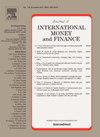Are strong neighbors good neighbors? “Doing business” spatial spillover effects and policy learning
IF 3.3
2区 经济学
Q2 BUSINESS, FINANCE
引用次数: 0
Abstract
In this paper, we introduce a novel econometric framework to investigate the producers and recipients of the spillover effect. We find that proximity to neighboring economies with pro-business policies is associated with improvements in a domestic economy’s business environment. This positive spatial spillover is predominantly generated by high-income economies, while low-income economies exhibit negligible impact on their neighbors. Furthermore, non-African low-income economies benefit more from their neighbors’ business reforms compared to high-income ones. Our analysis also reveals that the magnitude of the spillover effect is moderated by the physical adjacency (land or maritime borders) and political alignment between neighbors. Only high-income economies demonstrate the ability to translate an enhanced business environment into superior economic outcomes. We highlight the importance of business connections between neighboring economies.
强大的邻居是好邻居吗?“营商”空间溢出效应与政策学习
在本文中,我们引入了一个新的计量经济学框架来研究溢出效应的生产者和接受者。我们发现,邻近有亲商政策的经济体与国内经济商业环境的改善有关。这种积极的空间溢出主要由高收入经济体产生,而低收入经济体对其邻国的影响可以忽略不计。此外,与高收入经济体相比,非洲以外的低收入经济体从邻国的商业改革中获益更多。我们的分析还表明,外溢效应的程度受到邻国之间的物理邻接(陆地或海洋边界)和政治结盟的调节。只有高收入经济体有能力将改善的商业环境转化为卓越的经济成果。我们强调邻国经济之间商业联系的重要性。
本文章由计算机程序翻译,如有差异,请以英文原文为准。
求助全文
约1分钟内获得全文
求助全文
来源期刊

Journal of International Money and Finance
BUSINESS, FINANCE-
CiteScore
4.20
自引率
4.00%
发文量
141
期刊介绍:
Since its launch in 1982, Journal of International Money and Finance has built up a solid reputation as a high quality scholarly journal devoted to theoretical and empirical research in the fields of international monetary economics, international finance, and the rapidly developing overlap area between the two. Researchers in these areas, and financial market professionals too, pay attention to the articles that the journal publishes. Authors published in the journal are in the forefront of scholarly research on exchange rate behaviour, foreign exchange options, international capital markets, international monetary and fiscal policy, international transmission and related questions.
 求助内容:
求助内容: 应助结果提醒方式:
应助结果提醒方式:


